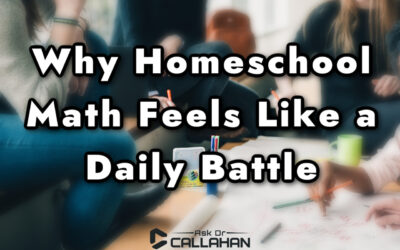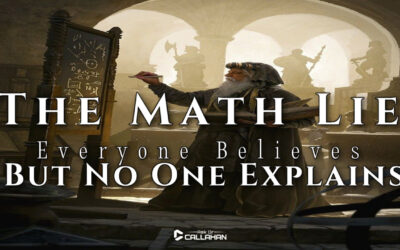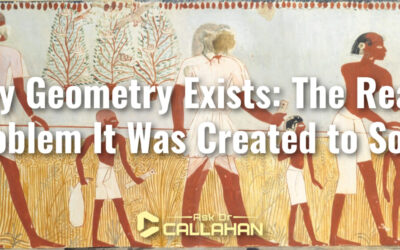If your student is frustrated by traditional math programs—or you are—this is for you.
What Do We Mean by “Traditional”?
When we say ‘traditional math,’ most people think of a big textbook, a lot of busywork, and maybe a teaching method that feels disconnected from real life. It’s often the same stuff used in schools, just brought home.
And while that approach works for some students, for many others—it just doesn’t click. They’re either overwhelmed by the pace, bored by the repetition, or confused by explanations that assume a classroom environment.”
What Are the Alternatives?
The good news is that there are great alternatives that you can use to better fit the way your student learns and the way you teach at home. Let me walk you through a few options we recommend:
- Concept-Based Programs
These focus on helping students understand why math works—not just memorizing steps. Programs like Harold Jacobs’ Elementary Algebra, which we use in our courses, are designed to teach thinking, not just procedures. - Video-Based Instruction
If you’re not comfortable teaching math yourself, video-based programs like AskDrCallahan offer teaching for you—with step-by-step explanations from a real college professor. Great for independent learners and parent peace of mind. - Project or Application-Based Learning
For hands-on learners, there are programs that connect math to real-world situations—like budgeting, architecture, or engineering problems. These often come later, but they’re fantastic for showing why math matters. - Slower-Paced or Two-Year Algebra Options
Not every student needs to rush through Algebra in one year. We often recommend splitting Algebra into two years—especially if your student needs more time to build confidence.
You’re Not Behind
I want to encourage you with this: Choosing a different path doesn’t mean you’re behind.
It means you’re building the path that works best for your student—and that’s the power of homeschooling.
The goal is not just to ‘finish the book’—it’s to develop thinking skills, confidence, and long-term understanding.
Learn More
If you’re exploring alternatives, check out our courses—we use real math books like Harold Jacobs’ Algebra and walk students through them with video teaching that’s clear, practical, and doable.
And if you’re not sure what’s best for your student, send us a message—we’d love to help.






